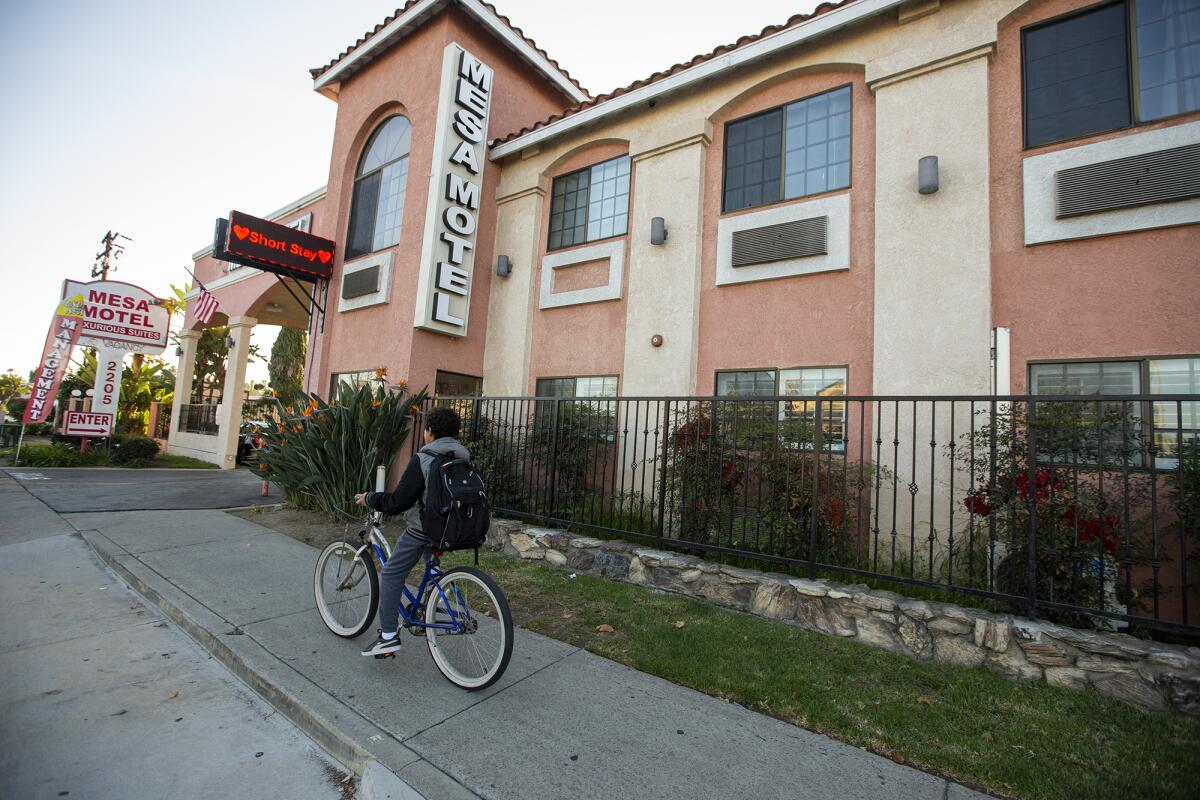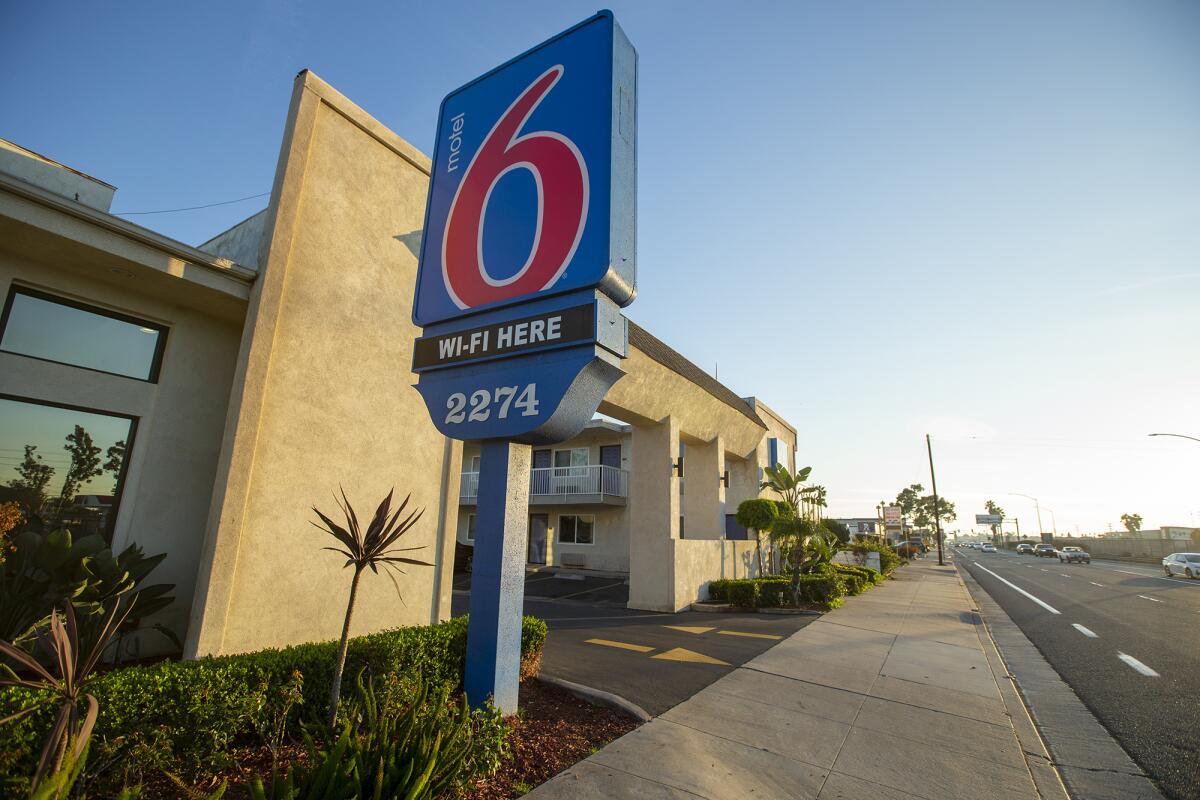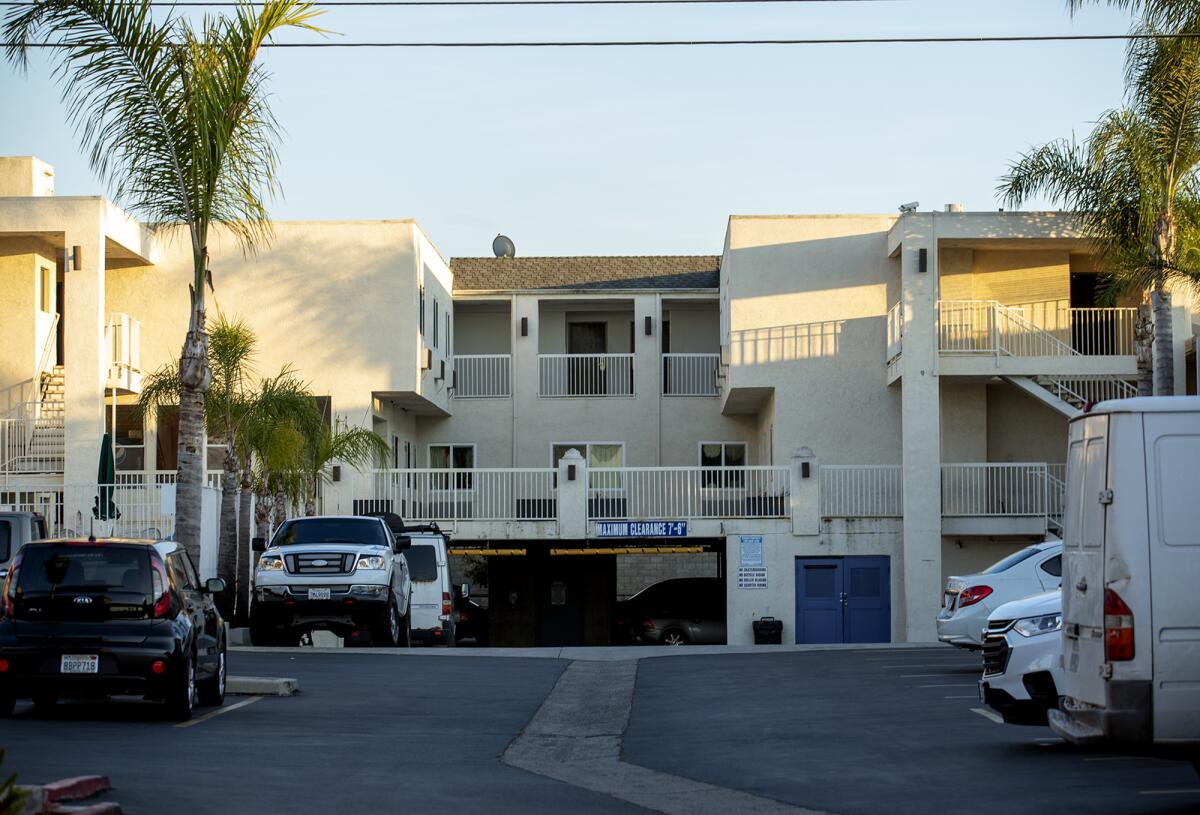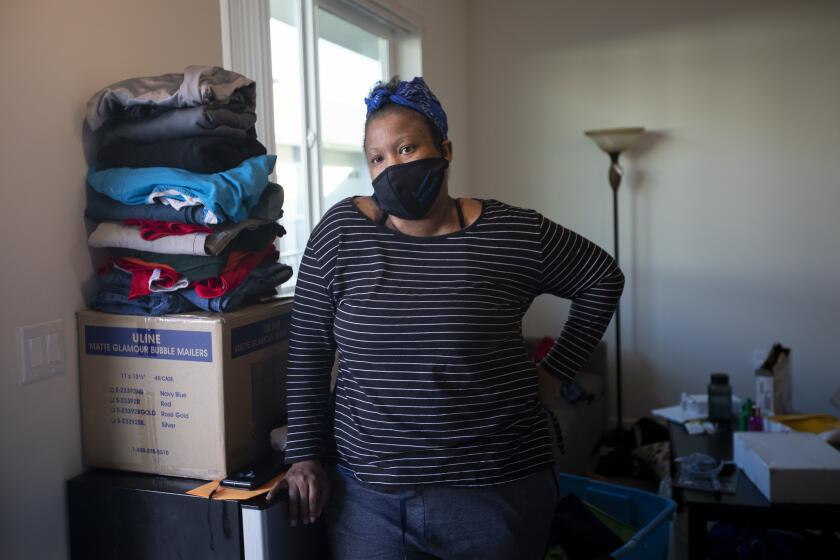Costa Mesa looks to underused motels to help meet housing goals through Project Homekey

Two Costa Mesa motels could soon provide permanent supportive housing to homeless and at-risk individuals, after City Council members Tuesday agreed to apply through the state’s Project Homekey program to help acquire, rehabilitate and convert them into residential units.
What began in March 2020 as Project Roomkey — a statewide effort to provide emergency shelter to unhoused residents during the pandemic — now aims to create permanent residential units to address a housing crisis.
And the city of Costa Mesa wants in. Council members Tuesday voted 6-1 to dedicate $3.5 million in local matching funds toward a collaboration with the County of Orange and area developers and service providers who will build and operate the sites.
Assistant City Manager Susan Price said two properties are being eyed for the transition — Mesa Motel on Harbor Boulevard, and a Motel 6 on Newport Boulevard.

“They are locations that were driven by developers working with motel owners who were willing and interested in looking at the Homekey program as an opportunity to contribute to permanent supportive housing,” Price said.
Mesa Motel would provide 46 units for homeless and eligible at-risk residents. It would be renovated by Pasadena-based CW Driver and HomeAid Orange County and serviced by the nonprofit Illumination Foundation.
Local partners seek up to $1.5 million in one-time matching funds from the city, which can draw from the $26 million in American Rescue Plan funding it received from the Biden administration earlier this year.
Motel 6 project could provide another 94 units — 40 for unhoused and at-risk citizens and 52 for low-income seniors 62 and older. It would be rehabilitated by Newport Beach’s Community Development Partners and serviced by the nonprofit Mercy House, which operates Costa Mesa’s bridge shelter.

Price said the conversions stand to benefit the city, where hostelries have historically presented public safety problems, ranging from loitering to narcotics use.
“Many of them over the course of the last year and a half have had relatively low occupancy, due to COVID-19 and travel restrictions,” she said of the city’s 29 motels. “However, the calls for [public safety] service appear to be going up.”
Costa Mesa Police Department data show police and fire unit responses to motels increased 70% between 2019 and 2021, while the number of police reports filed increased 91%.
The two projects would also add 140 residential units to the city’s housing stock, which would help Costa Mesa chip away at meeting its state-mandated Regional Housing Needs Assessment goal of planning for an additional 11,733 units by 2029.
For that reason and more, Mayor Pro Tem Andrea Marr enthusiastically supported the move.
A state program, Project Homekey, has resulted in one of the largest expansions in shelter for homeless people ever. Without more federal funding, it will expire.
“This is so necessary,” she said. “We can build all the homeless shelters we want, but unless we have an avenue to provide housing…we’re not solving the problem. This actually solves the problem.”
Councilman Don Harper, who cast the lone dissenting vote, said he preferred to abstain from moving forward because he didn’t know how the developments might impact the community.
“They may be positive, they may be negative,” he said. “I just don’t know.”
All the latest on Orange County from Orange County.
Get our free TimesOC newsletter.
You may occasionally receive promotional content from the Daily Pilot.





